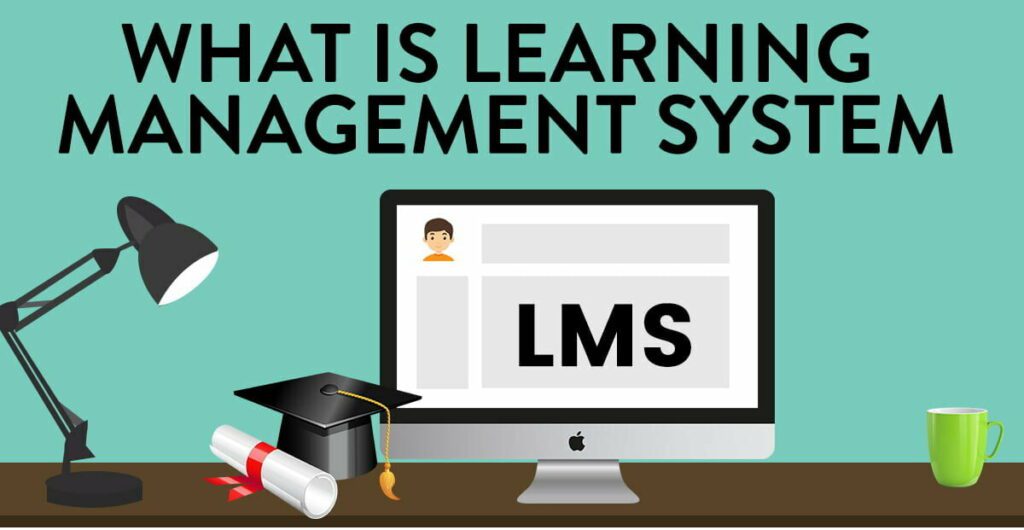Picking the most effective Knowing Monitoring System for Your Company
Picking the optimal Discovering Management System (LMS) for your company is a complex decision that calls for mindful factor to consider of various components. As organizations aim for performance and growth, the choice of an LMS comes to be increasingly significant.
Define Your Discovering Purposes
Defining clear learning objectives is vital for the effective execution of a Discovering Management System (LMS) These objectives function as a roadmap, assisting the growth of content, evaluations, and general training approaches within the LMS. By developing specific, quantifiable, possible, pertinent, and time-bound (CLEVER) objectives, companies can guarantee that the understanding experiences are aligned with their critical objectives and learner demands.
Reliable learning objectives should encapsulate what learners are expected to know or have the ability to do upon conclusion of a course or training program. This clearness not just help in content creation yet likewise assists in the evaluation of student progress and the overall effectiveness of the LMS. LMS SG. Additionally, well-defined objectives make it possible for stakeholders to assess whether the chosen LMS features and capabilities line up with their educational objectives.
Assess Customer Experience
Once learning objectives have actually been established, reviewing individual experience comes to be an important following step in selecting an appropriate Discovering Administration System (LMS) Customer experience includes the overall contentment and simplicity with which learners engage with the system. A properly designed LMS needs to promote intuitive navigating, ensuring that customers can find courses, materials, and assistance easily.
To examine user experience, consider conducting functionality screening with a depictive example of end-users. Key elements to examine include the LMS's interface design, availability functions, mobile compatibility, and the clearness of instructions supplied.
Additionally, review the schedule of support resources, such as tutorials and help centers, which can boost the individual experience. The responsiveness of consumer support is also important; prompt help can significantly reduce disappointments that individuals may come across. Ultimately, selecting an LMS that focuses on individual experience not just enhances the discovering process but likewise fosters greater engagement and satisfaction among students.

Evaluate Integration Abilities
Acknowledging the value of smooth performance, reviewing assimilation capacities is critical when choosing an Understanding Management System (LMS) An effective LMS should assist in interoperability with existing systems, such as Human Source Monitoring Solution (HRMS), Customer Connection Administration (CRM) platforms, and other instructional devices. This combination improves information circulation, reduces management problems, and guarantees a natural understanding atmosphere.
When evaluating an LMS, consider the kinds of integrations supplied. Search For Application Shows User Interfaces (APIs), Solitary Sign-On (SSO) capabilities, and pre-built adapters that improve integration procedures. Additionally, verify the LMS's ability to integrate with third-party devices, such as content libraries or evaluation systems, which can substantially enrich the learning experience.

Take Into Consideration Scalability and Versatility
As organizations advance, the capability of a Learning Administration System (LMS) to scale and adjust becomes significantly essential. A scalable LMS can accommodate development in user numbers, program offerings, and web content without endangering performance or customer experience. As companies broaden, whether with increased personnel, brand-new areas, or varied training requirements, the LMS needs to seamlessly grow together with these adjustments.
Flexibility is similarly crucial; an effective LMS needs to sustain various learning methods, such as online, blended, and mobile discovering. This flexibility permits organizations to react promptly to arising trends in training and advancement, making certain that they can offer appropriate and appealing discovering experiences - LMS Singapore. Additionally, the system should supply adjustable functions, making it possible for companies to customize the LMS to their specific requirements and branding
Furthermore, a flexible LMS ought to integrate easily with existing tools and platforms, assisting in a cohesive learning environment. Therefore, when choosing an LMS, it is important to evaluate not just its existing capacities however also its prospective to grow and adapt abreast with the company's critical objectives and progressing finding out demands. This insight can considerably improve the long-term feasibility of the selected LMS.
Review Expenses and Budgeting
When reviewing a Discovering Administration System (LMS), evaluating expenses and budgeting is necessary to make certain that the financial investment aligns with the organization's financial capabilities and strategic goals. Organizations needs to start by determining the total price of ownership, that includes licensing fees, execution expenses, upkeep, and any additional costs such as training and technical assistance.
It is crucial to compare numerous LMS options, as rates models can vary dramatically among suppliers. Some systems may provide a subscription-based version, while others might charge a single cost. Organizations should also take into consideration the scalability of the LMS; as they grow, the expense framework might change, influencing lasting budgeting.

Final Thought
Selecting a proper Understanding Management System (LMS) is crucial for attaining business learning objectives. An extensive analysis of user experience, combination abilities, scalability, and monetary factors to consider makes sure that the chosen LMS aligns with tactical objectives and student demands. By methodically addressing these aspects, companies can boost finding Canvas Singapore out end results, assist in seamless operations, and support future growth. Ultimately, the ideal LMS acts as a pivotal device in cultivating an efficient understanding setting and driving organizational success.
Selecting the optimum Discovering Administration System (LMS) for your company is a multifaceted choice that needs careful factor to consider of numerous aspects.Defining clear understanding purposes is essential for the effective implementation of a Learning Administration System (LMS)Once discovering goals have actually been established, evaluating user experience becomes an essential next action in choosing a proper Discovering Management System (LMS)As organizations evolve, the ability of a Learning Monitoring System (LMS) to scale and adapt comes to be significantly essential.Picking a suitable Understanding Management System (LMS) is necessary for achieving business learning goals.